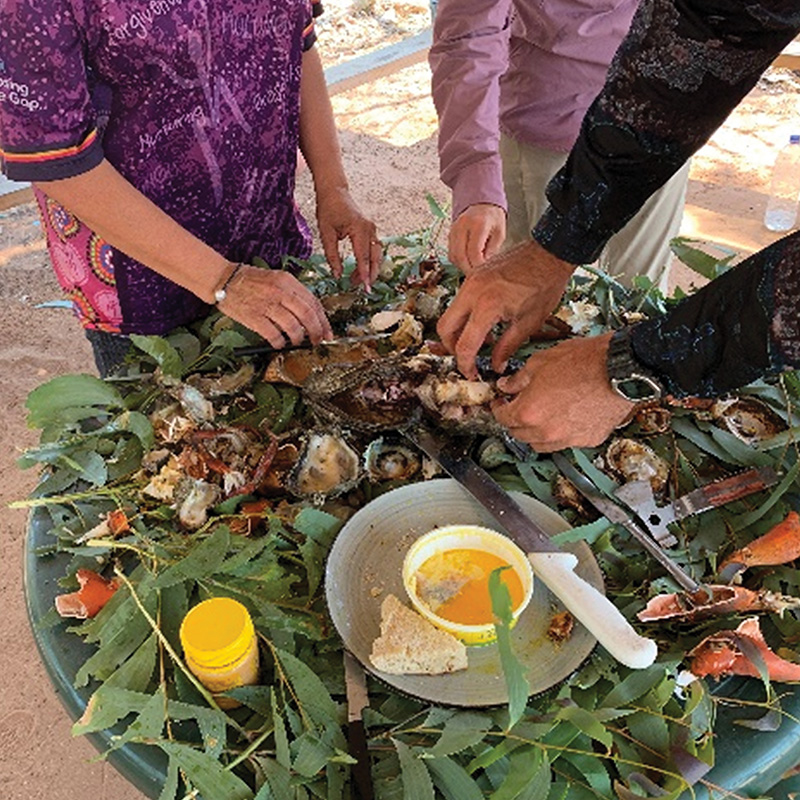Search
Research
Transcriptional rewiring in CD8+ T cells: implications for CAR-T cell therapy against solid tumoursT cells engineered to express chimeric-antigen receptors (CAR-T cells) can effectively control relapsed and refractory haematological malignancies in the clinic. However, the successes of CAR-T cell therapy have not been recapitulated in solid tumours due to a range of barriers such as immunosuppression, poor infiltration, and tumour heterogeneity.
Research
Mesothelioma survival prediction based on a six-gene transcriptomic signatureMesothelioma is a lethal cancer. Despite promising outcomes associated with immunotherapy, durable responses remain restricted to a minority of patients, highlighting the need for improved strategies that better predict outcome. Here, we described the development of a mesothelioma-specific gene signature that accurately predicts survival.
Research
Effect of a campaign with oral polio vaccine on general health: A cluster-randomised trial in rural Guinea-BissauObjectives: To investigate in a cluster-randomised trial whether a campaign with oral polio vaccine (C-OPV) reduced mortality and morbidity.
Research
A situational assessment of treatments received for childhood diarrhea in the Federal Republic of NigeriaWe assess progress towards improved case management of childhood diarrhea in Nigeria over a period of targeted health systems reform from 2013 to 2018. Individual and community data from three Demographic and Health Survey rounds are leveraged in a geospatial model designed for stratified estimation by venue of treatment seeking and State.
Research
Towards precision cancer medicine for Aboriginal and Torres Strait Islander cancer health equityDelivering cancer control at scale for Aboriginal and Torres Strait Islander communities is a national priority that requires Aboriginal and Torres Strait Islander leadership and codesign, as well as significant involvement of the Aboriginal community-controlled health sector. The unique genomic variation observed among Aboriginal and Torres Strait Islander peoples may have implications for standard and precision medicine.
Research
An overview of risk factors, management and prevention of cochlear implant infectionsWith cochlear implantation becoming increasingly performed worldwide, an understanding of the risk factors, preventive measures, and management of cochlear implant (CI) infection remains important given the significant morbidity and cost it conveys.
Research
Specific IgA, but Not IgG, in Human Milk from COVID-19-Infected Mothers Neutralizes SARS-CoV-2This study highlights the importance of human milk in providing anti-severe acute respiratory syndrome coronavirus 2 immunity to newborns. The highest protective activity of human milk against COVID-19 was found in colostrum from infected mothers.
Research
Effect of different lung recruitment strategies and airway device on oscillatory mechanics in children under general anaesthesiaAtelectasis has been reported in 68 to 100% of children undergoing general anaesthesia, a phenomenon that persists into the recovery period. Children receiving recruitment manoeuvres have less atelectasis and fewer episodes of oxygen desaturation during emergence. The optimal type of recruitment manoeuvre is unclear and may be influenced by the airway device chosen.
Research
END RHDEND RHD is an alliance of health, research and community organisations seeking to amplify efforts to end rheumatic heart disease in Australia through advocacy and engagement.

Researchers are collaborating with Community Elders to find out how bush tucker and traditional food can improve the health of Aboriginal children.
